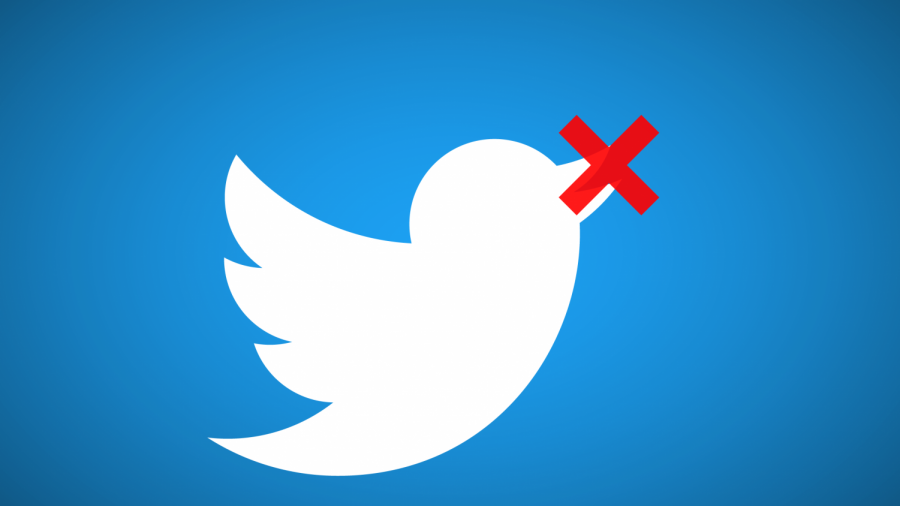Constricting free speech or consequence?
January 26, 2021
Following former president Donald Trump’s ban from multiple social media outlets after the riots of the Capitol on January 6, Americans have sparked a new debate over whether Trump’s ban was a violation of free speech, or simply a consequence that was a long time coming for the president.
Two days after Trump was briefly suspended for twelve hours after his controversial tweets on January 6, Twitter permanently banned his account and 70,000 other profiles, those of which were associated with the far right-wing conspiracy group QAnon, in the context of avoiding the “risk of future incitement of violence.” Facebook CEO Mark Zuckerberg quickly followed the same protocol on both Facebook and Instagram, along with other social media apps such as YouTube, Snapchat, Amazon Web Series, Reddit, and yes, even Tiktok. In protest, a flood of Trump supporters left the apps, criticizing the ban to be a violation of free speech.
On one hand, because social media has become such an effective tool of communication, it seems as though a ban would be an infringement of constitutional rights. Former Republican Georgia Representative Doug Collins wrote in a tweet on January 8, “Big Tech isn’t shutting down accounts due to ‘risk’. They’re trying to control what you READ. What you THINK. What you BELIEVE. They’re after one thing: control.” The replies to his message were mixed, but a majority were arguing that Trump incited the violence at the Capitol, even going as far to say that Trump was encouraging an insurrection of the US government.
But some Twitter employees and users believe that Trump should have been banned a long time ago, specifically immediately after his, “When the looting starts, the shooting starts,” tweet during the nationwide protests that took place in May following the death of George Floyd. Within this same tweet, the former president also referred to the Black Lives Matter protesters as “thugs”—a stark contrast in comparison to his message to those whom he referred to as “patriots” telling them to, “Go home with love and in peace.” This tweet was removed shortly after it was posted, however the words still lingered in the minds of Americans.
So was this widespread ban a violation of free speech? Joliet West senior Kelly Rappaport doesn’t think so. “Social media companies are corporations that are not associated with the government or endorsed by them; therefore they are not subject to the First Amendment.” In an article for Vox, First Amendment Clinic director at Case Western Reserve University law, Andrew Geronimo, appears to be in agreement with Rappaport. He tells the website that these social media platforms are privately owned and are therefore not in the public square, so there are no requirements for those corporations, like Twitter, to regulate free speech.
Meanwhile, Joliet West AP US History and Sociology teacher Annie Monninger believes that a definitive line needs to be drawn when it comes to freedom of speech. “There is so much freedom of speech that when you take it that one step beyond, to where you’re directly inciting violence,—and in the case of President Trump—it is a steady build up culminating into an overt call for violence, you lose the privilege of having freedom of speech.”
As the Trump administration came to a close last Tuesday night, his loyal supporters are dominating Twitter with trending hashtags such as #NotMyPresident and #ImpeachBidenNow. In the age of technology and what America has seen play out in the past couple of weeks, lawmakers should begin to rethink social media and its role within censorship and free speech in order to avoid these widespread discrepancies again.


